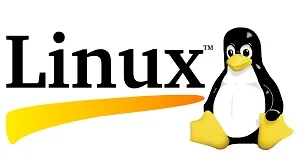Today, Linux is becoming the OS of choice, gaining on Windows. The choice of which to use will depend on how a company operates and what
applications it uses.
Here are some advantages of using Linux over Windows:
- Linux is an open-source system, thus offering lower overhead. Free, of course, is an incentive in itself. It is thought that Linux, being open-source software, may have better security because of the number of people in the Linux community constantly scanning it for flaws.
- Linux has an active, worldwide group of developers offering free support through forums and community sites.
- Regarding security, Linux does not grant “full administrator” access to user accounts by default like Windows, so accounts are usually lower-level, with no privileges within the wiser system. If a virus gets in, the damage it can do is limited, usually restricted to files and folders on an individual machine rather than an entire network. Since most malware is written for Windows, a Linux system is less likely to be attacked by a virus. Linux is not immune to attacks, but has a lower chance of being affected by one, as Windows is much more commonly used.
- A larger company may find an OS change more challenging, as making the switch to a large number of computers may be too complicated, especially since most employees will not be familiar with Linux.
- According to PC World, “The Linux Foundation is a corporate collective of platinum supporters (Fujitsu, Hitachi, HP, IBM, Intel, NEC, Novell, and Oracle) and members who, through donations and membership dues, sponsor Linus Torvalds and others who work on Linux full time. Their purpose is to “promote, protect and standardize Linux to fuel its growth around the world.” It is the primary source for all things Linux. The Linux Foundation is a big positive for Linux users and adopters because its existence assures continued development of Linux.”
- Where commercial support used to be a concern, Linux’s “big three” providers now offer 24/7/365 support. Also, Linux can support businesses that use Windows.NET technology.
- Linux uses a standard set of Unix commands, most of which transfer easily.
- Linux runs on x86 32-bit and 64-bit architectures. If a system runs Windows, it will run Linux.
- Unlike having to upgrade Windows software every few years, Linux offers regular updates of its packages and sources, several times per year, and security updates as needed.
These advantages allow Linux to clearly gain in popularity over Windows operating systems, and systems administrators who are trained in Linux are in demand! Get this; according to linuxsurvival.com (as of April 2016), Nearly all hiring managers are looking to recruit Linux professionals in the next six months.
Linux recruiting has been rising steadily, going from 90% in 2012 to 97% in 2015.
The Robert Half Technology 2016 Salary Guide says, “Systems administrators make $67,500 – $107,500 (a 5.3% increase from 2015). That salary range is for general system admins, but if they have Linux skills, then they earn an 8% premium.”
Learning Linux has become essential; it can give companies a less expensive system with potentially more security and support and give systems administrators an edge when looking to enhance their careers.
Recommended for you
-
Cloud Computing Technician Training
The “cloud” refers to resources hosted in a data center that you access over the internet. Rather than keeping data or operating applications on your own computer or in-house server.
Computer Network Technician
IT security refers to the measures taken to protect digital systems, networks, and information from theft, harm, or unauthorized interference.
CCI Training Center’s Computer & Network Administrator Program
Linux training is part of CCI’s Computer & Network Administrator program. The program also includes A+, Cisco, Security, Cloud Computing, and Windows server 2012. Call CCI’s Arlington or Dallas campus or email today!
Sources
http://linuxsurvival.com/the-linux-job-market/
http://www.pcworld.com/article/201731/10_reasons_to_dump_windows_and_use_linux.html
Martin Zandi

Related Articles
























